

Geza Kovacs, Daniel Deutsch, Markus Freitag. Mitigating Metric Bias in Minimum Bayes Risk Decoding. WMT 2024.

From Jack of All Trades to Master of One: Specializing LLM-based Autoraters to a Test Set. ICML 2025.
WMT24++: Expanding the Language Coverage of WMT24 to 55 Languages & Dialects. ACL 2025.
SMOL: Professionally translated parallel data for 115 under-represented languages.
Findings of the Word-Level AutoCompletion Shared Task in WMT 2023. WMT 2023.
Findings of the Word-Level AutoCompletion Shared Task in WMT 2022. WMT 2022.

Large Language Models are Few-Shot Health Learners.
Transforming Wearable Data into Health Insights using Large Language Model Agents.
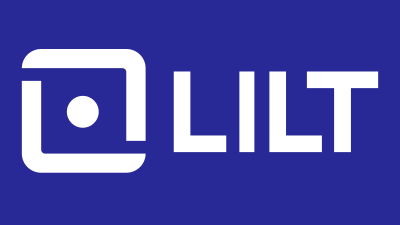
Jessy Lin, Geza Kovacs, Aditya Shastry, Joern Wuebker, John DeNero. Automatic Correction of Human Translations. NAACL 2022 (best paper award).

Geza Kovacs, John DeNero. Measuring the Effects of Human and Machine Translation on Website Engagement. AMTA 2022 (best presentation award).

Geza Kovacs. Interactive Machine Translation Use on Lilt. AMTA 2020 Workshop on the Impact of Machine Translation.
Samuel Läubli, Patrick Simianer, Joern Wuebker, Geza Kovacs, Rico Sennrich, Spence Green. The Impact of Text Presentation on Translator Performance. Target: International Journal of Translation Studies, 2021.

Geza Kovacs, Zhengxuan Wu, Michael Bernstein. Not Now, Ask Later: Users Weaken Their Behavior Change Regimen Over Time, But Expect To Re-Strengthen It Imminently. CHI 2021.

Geza Kovacs. HabitLab: In-the-Wild Behavior Change Experiments at Scale. Stanford University Department of Computer Science, PhD Thesis, 2019.

Geza Kovacs, Drew Mylander Gregory, Zilin Ma, Zhengxuan Wu, Golrokh Emami, Jacob Ray, Michael Bernstein. Conservation of Procrastination: Do Productivity Interventions Save Time or Just Redistribute It? CHI 2019.

Geza Kovacs, Zhengxuan Wu, Michael Bernstein. Rotating Online Behavior Change Interventions Increases Effectiveness But Also Increases Attrition. CSCW 2018.
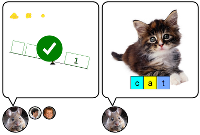
Kiley Sobel, Geza Kovacs, Galen McQuillen, Andrew Cross, Nirupama Chandrasekaran, Nathalie Riche, Ed Cutrell, Meredith Morris. EduFeed: A Social Feed to Engage Preliterate Children in Educational Activities. CSCW 2017.
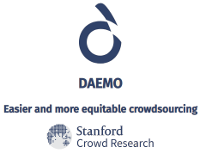
Rajan Vaish, Neil Gaikwad, Geza Kovacs, Andreas Veit, Ranjay Krishna, Imanol Arrieta Ibarra, Camelia Simoiu, Michael Wilber, Serge Belongie, Sharad Goel, James Davis, Michael Bernstein. Crowd Research: Open and Scalable University Laboratories. UIST 2017.
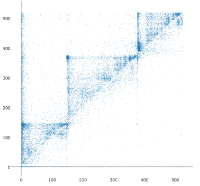
Geza Kovacs. Effects of In-Video Quizzes on MOOC Lecture Viewing. Learning at Scale 2016.
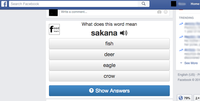
Geza Kovacs. FeedLearn: Using Facebook Feeds for Microlearning. CHI 2015 Works in Progress.
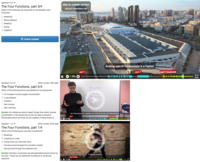
Geza Kovacs. QuizCram: A Question-Driven Video Studying Interface. CHI 2015 Student Research Competition.

Geza Kovacs, Robert C Miller. Smart Subtitles for Vocabulary Learning. CHI 2014.
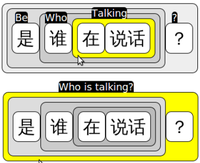
Geza Kovacs, Robert C Miller. Foreign Manga Reader: Learn Grammar and Pronunciation while Reading Comics. UIST 2013 Demo.
Geza Kovacs. Multimedia for Language Learning. MEng Thesis, MIT, 2013.
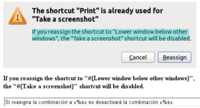
Geza Kovacs. ScreenMatch: Providing Context to Software Translators by Displaying Screenshots. CHI 2012 Student Research Competition (1st place).
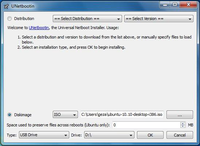





My other open-source projects are on Github, Npm, PyPI, and Launchpad.
Understanding Users (CS 377U) - Stanford - TA, Spring 2019
Human-Computer Interaction Research (CS 376) - Stanford - TA, Fall 2018
Natural Language Processing (6.863) - MIT - TA, Fall 2012
Introduction to C++ (6.096) - MIT - Instructor, MIT, IAP 2011
Introduction to C# and the .NET Framework - MIT - Instructor, IAP 2011
Maslab Autonomous Robotics Competition (6.186) - MIT - Software Director, IAP 2011
For personal correspondence, I prefer email:

If asking about UNetbootin, please report an issue on Github, and consider making a donation.
Can I have the source code for one of your projects?
Check my GitHub account.
What programming languages and libraries do you use and recommend?
I used to contribute to the LiveScript language but it's not very well maintained anymore, so mostly use Python and JavaScript these days.
For data science I prefer using Python in a Jupyter notebook, using rpy2 to invoke R libraries.
For machine learning I prefer PyTorch.
For backend development I prefer Node.js with Koa if writing in JavaScript, or Flask if writing in Python.
For frontend development I am experienced with React, Polymer, and AngularJS.
For mobile development I've had good experiences with NativeScript and React Native.
What natural languages do you know?
I'm fluent in English and Standard Chinese (Mandarin). I also know Hungarian by virtue of having spent my childhood in Hungary, and Vietnamese from speaking it with my family. I have also studied Spanish and Japanese, and can still read and understand them but do not speak them regularly.
How do I pronounce your name?
 Kovács Géza (IPA: kovaːt͡ʃ ɡeːzɒ) The "e" sound in Geza is the same as in "hey". The "cs" in Kovacs is pronounced "ch", not "ks". Hungarian puts the surname first.
Kovács Géza (IPA: kovaːt͡ʃ ɡeːzɒ) The "e" sound in Geza is the same as in "hey". The "cs" in Kovacs is pronounced "ch", not "ks". Hungarian puts the surname first.
I also use my Vietnamese name,  Minh Trung (漢字: 明忠) (IPA: miŋ˧˧ ṯɕʊwŋ˧˧)
Minh Trung (漢字: 明忠) (IPA: miŋ˧˧ ṯɕʊwŋ˧˧)